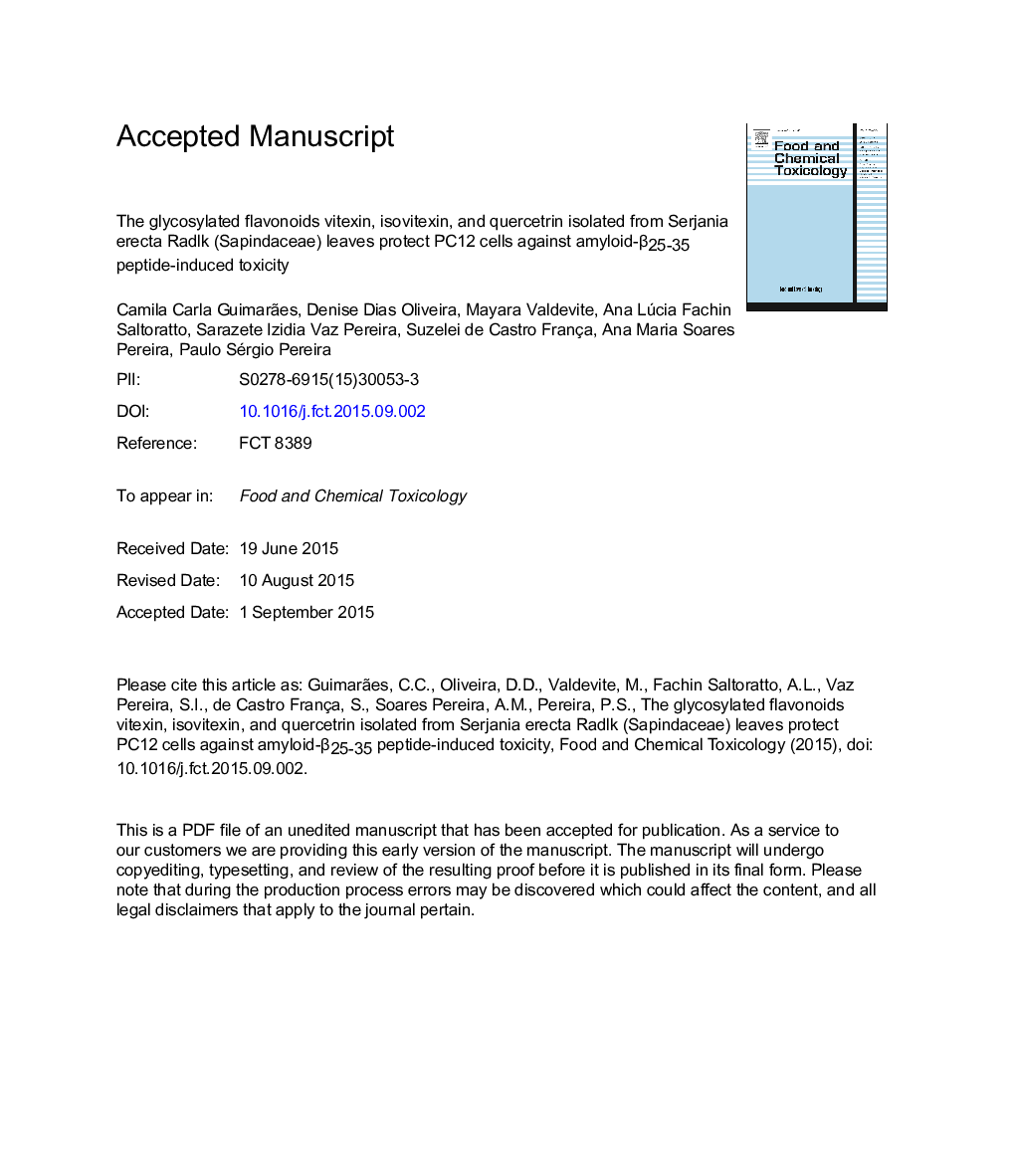| Article ID | Journal | Published Year | Pages | File Type |
|---|---|---|---|---|
| 5849575 | Food and Chemical Toxicology | 2015 | 30 Pages |
Abstract
The Aβ peptide-mediated toxicity participates in the neuronal death that occurs in Alzheimer's disease. The present study aims to isolate the major compounds of Serjania erecta Radlk leaves and assess whether these compounds protect PC12 cells from Aβ25-35 peptide-induced toxicity. We isolated three flavonoid glycosides with high purity: quercetrin, vitexin, and isovitexin. The Aβ25-35 peptide alone decreased the PC12 cell viability in a concentration-dependent manner, as evaluated by the 3-(4,5-dimethylthiazol-2-yl)-2,5- diphenyltetrazolium bromide (MTT) assay. We selected the Aβ25-35 peptide concentration of 50 µM for the experiments. Treatment of PC12 cells with the flavonoids before exposure to the Aβ25-35 peptide increased cell viability, i.e., these compounds protected the cells against Aβ25-35 peptide-induced toxicity. Vitexin promoted higher protection levels than quercetrin and isovitexin, and reduced the lactate dehydrogenase release and NO production in Aβ25-35 peptide-treated PC12 cells. Therefore, the glycosylated flavonoids that exist in S. erecta leaves, especially vitexin, protect PC12 cells from Aβ25-35 peptide-induced toxicity.
Keywords
DMEMTLCFBSAβBACE13-(4,5-dimethylthiazol-2-yl)-2,5-diphenyltetrazolium bromideAβ25–35DMSODulbecco's modified Eagle MediumMTTamyloid β-peptideAlzheimer's diseaseanalysis of varianceANOVAOxidative stressDimethyl sulfoxidefetal bovine serumFlavonoidlactate dehydrogenaseLDHNeuroprotectionNitric oxideVitexinβ-amyloid peptidethin layer chromatographyHPLChigh-performance liquid chromatography
Related Topics
Life Sciences
Agricultural and Biological Sciences
Food Science
Authors
Camila Carla Guimarães, Denise Dias Oliveira, Mayara Valdevite, Ana Lúcia Fachin Saltoratto, Sarazete Izidia Vaz Pereira, Suzelei de Castro França, Ana Maria Soares Pereira, Paulo Sérgio Pereira,
